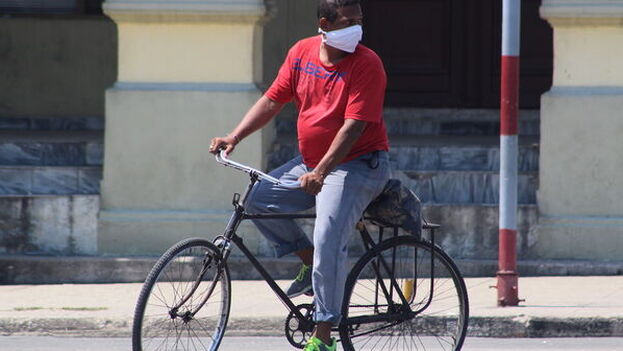
![]() 14ymedio, Reinaldo Escobar, Havana, 16 May 2020 — Throughout the decade of the 1960s, many students of the Cuban reality liked to place much of the blame for the persistent problems on what was generally called “the inheritance of the past.” Time passed, like the eagles fly over the sea, and the time came when it seemed ridiculous to hold the past accountable.
14ymedio, Reinaldo Escobar, Havana, 16 May 2020 — Throughout the decade of the 1960s, many students of the Cuban reality liked to place much of the blame for the persistent problems on what was generally called “the inheritance of the past.” Time passed, like the eagles fly over the sea, and the time came when it seemed ridiculous to hold the past accountable.
The generation that was in its teens during the childhood of the Revolution was persuaded that the most radical decisions taken (the nationalization of American properties and subsequent seizures of the businesses of the national bourgeoisie) would result in the multiplication of the wealth and well-being of the nation: The bright future worth any temporary sacrifice.
It seemed convincing, especially since the world was bipolar at that time and, although the Island is geographically located in the Northern and Western hemispheres, we adopted the ideology of Eastern Europe and we proposed to exercise leadership in the Latin American South. The discussion of whether socialism was possible in one country (transcendental at the beginning of the Soviet process) was totally alien to us, because a socialist camp already existed and Cuba was part of it.
But in the last decade of the last century it happened that we were left alone in this part of the world and we discovered that those who made the decision to impose a socialist system had bet on the losing horse.
It was then that the restrictions derived from the United States’ policy towards Cuba began to have more relevance in the analysis, that set of measures that some call the embargo and others the blockade.
Most commonly, when people talk about “the problems” on this island, they refer to the deterioration of the infrastructure, the lack of productivity in agriculture and industry, the housing deficit and the shortages of food and other basic products, the difficulties of transportation, the inability to attract investment, the debt with the rest of the world, the dual currency system, the absence of political liberties, the loss of civic values, and a long etcetera that would make this reflection too extensive.
Today it becomes more clearly evident that the blame for these problems persisting does not lie with the already “overcome” heritage of the past, nor does it rest entirely on the US response to the seizure of its properties, but on the only aspect that can be modified with political will: the economic, political and social system that has proven unworkable without the Soviet subsidy.
Seeking and finding the solution does not mean that we will then be left without problems. It is enough to read what economists and political scientists free of official thinking say to verify that the solutions to our problems will open the doors to new problems, ones that will require new corrections. The long list of those enviable problems that Cubans would like to have.
In the most recent exercise aimed at finding a remedy for our ills, carried out by the Center for Coexistence Studies in the context of the Covid-19 pandemic, long-range recommendations stand out. These include concepts such as “openness, liberation, permitting, decriminalizing,” which would not only unlock the productive forces, but could also unleash a flow of opinions long masked by fear of repression.
How many economists, political scientists, or historians have refrained from making their proposals public for fear of the consequences?
For too long Cubans have faced the dilemma of investing our time, our talent, our resources, in trying to solve “the problems,” as opposed to dedicating our energies to solving “my problem.” When a Cuban tries to find a solution to the country’s problems through an approach different than that of the only party allowed, the ghost of repression appears and it becomes more difficult to live quietly. The invitation to opportunism reaches everyone and emigration as an escape valve has always been within reach.
It is difficult to believe that where experience, information and intelligence abound, it is not understood that the solution is to open, not to close, and to accept the existence of divergent opinions, instead of repressing them. It gives the impression that in that indecipherable space – up there – where decisions are made, there is a dilemma similar to the one we have down here below, which is expressed in having to decide between appealing to the correct solutions at the risk of losing power or to resist applying them in order to maintain one’s position.
When the tolerated ways of expressing opinions do not permit the taking of steps toward ideas for renewal, when the structures dedicated to processing complaints and appeals become deaf, only two paths remain: submission or rebellion.
Power does not repress for sadistic pleasure, but to enthrone complicit obedience. The rebellious part of the citizenry that expresses its disagreement, despite the high price imposed on it, is often denigrated and denounced by that other part which, without enjoying the attributes of power, has chosen to ignore the country’s problems. This feigned docility is also helpful in solving one’s own specific problems.
In the intricacies of that complicated equation the nation falls apart. Time passes, like the vultures fly over the Plaza of the Revolution.
___________________
COLLABORATE WITH OUR WORK: The 14ymedio team is committed to practicing serious journalism that reflects Cuba’s reality in all its depth. Thank you for joining us on this long journey. We invite you to continue supporting us by becoming a member of 14ymedio now. Together we can continue transforming journalism in Cuba.
